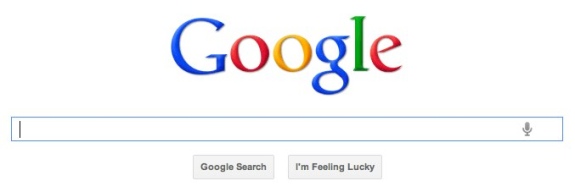
What Is Search+?
Google unveiled a major change to its search functionality today, one that Venture Beat's Jolie O'Dell describes as "the biggest change in a decade." Dubbed "Search+" Google is taking steps to make its search more "social" -- although as that + symbol indicates, "social" in this case really just means "Google+."
Search+ will integrate into its search results information taken from your Google+ Circles -- links, photos and status updates (including status updates that are not public but that are shared within the limits of Circles). These will appear as "personalized search results." (Recommended reading: Wired's Mike Isaacs' "With Search+, Google Fires Another Shot at Facebook")
Why It Matters for the Web
Google+ has already raised some concerns, long before the introduction of Search+. ReadWriteWeb's Jon Mitchell recently ranted that Google+ was "messing up the Internet," in part by returning search results that prioritized Google+ -- or rather a link shared to G+ -- over original content -- namely to where the link would have originally taken you. The announcement of Search+ today has prompted additional dismay from various tech journalists and industry observers. "This sucks for the web," notes Federated Media's John Battelle. (It certainly sucks for Twitter.) The Atlantic's Alexis Madrigal wonders if "in the race to protect its flank from Facebook, Google will lose track of why we loved them in the first place." And investor and former Techcrunch writer MG Siegler asks in his headline a question that he thinks the FTC might be considering too: "Antitrust+?"
But not everyone seems so disturbed by the news. To the contrary, Wired's Steven Levy (author of In The Plex: How Google Thinks, Works, and Shapes Our Lives) wonders if the new features mean that Google has finally burst the "filter bubble" that Eli Pariser described in his book of that same name. Levy argues that because Search+ allows you to opt-out of these personalized search results, letting you view the non-personalized results, that there's actually more transparency and users have better control over their search results now.
Indeed the new Search+ will allow you to toggle between "Search Plus Your World" and "No Personal Results." The latter, according to Google, means "no results from your friends, no private information and no personalization of results based on your Web History. This toggle button works for an individual search session, but you can also make this the default in your Search Settings. We provide separate control in Search Settings over other contextual signals we use, including location and language."
How Will Search+ Work in Schools?
Last summer, eSchool News published a story raising concerns about social search and students, making many of the same arguments about the filter bubble that Pariser describes in his book. In other words, students' worldview will be limited, not broadened.
At the time, I felt as though the article overlooked one of the most important elements of these new social signals and how they will impact students' searches: namely, students typically aren't logged into their social accounts at school. They aren't logged in to Facebook. They aren't logged in to Google+. (They might be logged in to a Google account if the school has Google Apps for Education and/or if students are on their own devices.) As such, in most cases students' searches -- on public, shared machines at school at least -- won't include these new algorithms. (You can read my full response to the article here).
Even with the changes to Google search today, it's worth pointing out that Google+ is still off-limits to those under age 18.
That means Search+ won't offer any "personalization" for most searches at student make at school -- good news, perhaps, for those concerned that it will (at best) muddy search results.
But I wonder if keeping students away from social search is necessarily a "win." After all, students will have to negotiate these signals when they're using their own computers. I'd argue we already fail to help students understand how search works. Students (and adults, of course) do not critically assess the information they find online; they confuse SEO ranking with accuracy; they don't know how to use CTRL-F to search within a webpage. Search literacy is incredibly important, and we already struggle with it -- even though "search" (not "social") remains the most popular online activity.
It's not clear if that toggle button that Levy and Pariser like -- the ability to see personalized and non-personalized results -- will appear to K-12 Google Apps for EDU users. If it does, it's certainly a good opportunity to talk about the ways in which the search engine works. I've asked Google to comment on how Search+ will alter its Apps for EDU users' search experience, but I haven't heard back. (By the sounds of it, it's been a busy day in the 'Plex.)